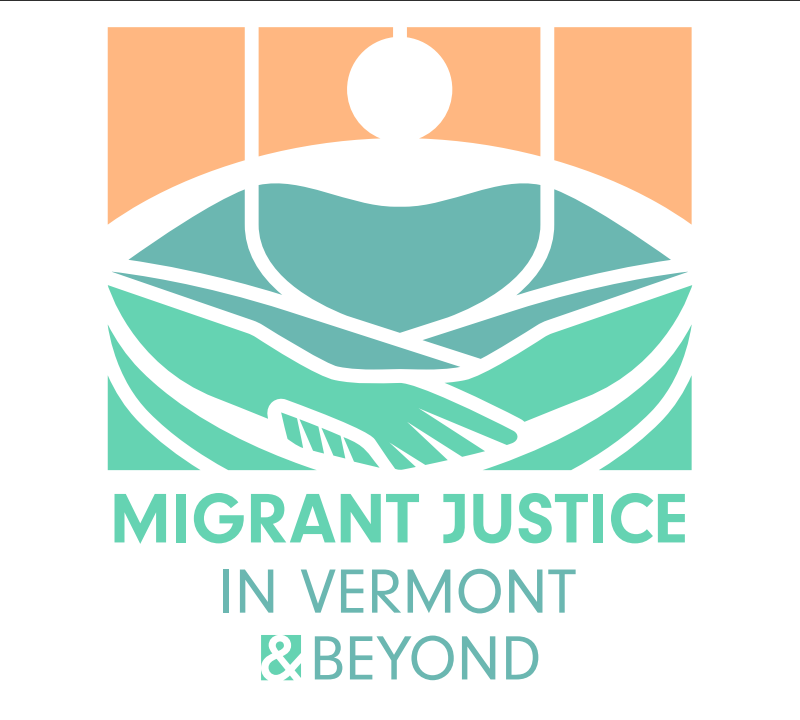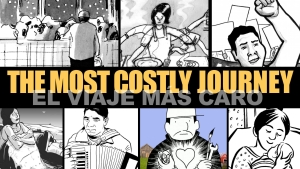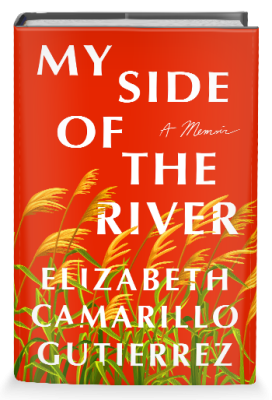Middlebury Migration Conference

Middlebury Migration Conference
October 24th, 2025: 9am-6:30pm
McCardell Bicentennial Hall (MBH) 216
Open to Middlebury College and Community Partner affiliates - seating limited
Migration has never been a more timely issue in Vermont, the United States, and globally. People hailed as migrants have been rendered both hypervisible and at the same time, overlooked. They are featured as “masses” in press cycles and “criminals” in political talking points, but their individual experiences, stories, and perspectives are frequently obscured, essentialized, and stigmatized. Building on the work, outreach, and partnerships cultivated through the Axinn Center for the Humanities’ “Migrant Justice in Vermont and Beyond” Mellon initiative, this one-day conference seeks to nuance the histories and present-day realities of migration, from the local to the regional and global scales. This conference asks, what circumstances have compelled people to migrate, historically and in the present? How can stories of migration help us conceptualize the intersections of (im)mobility with indigeneity, empire, racialization, displacement, the environment, gender, sexuality, the law, political economy, and culture? How might we complicate our own perceptions and received ideas about migration locally and globally? This conference is grounded in the belief that humanistic inquiry is foundational for conceptualizing migration with rigor, empathy, and curiosity, and that this necessarily entails the co-creation of knowledge beyond the academy. To that end, this conference centers the knowledge, experiences, and praxes of people who have experienced migration –– organizers, artists, activists, and scholars alike. This conference aims to bring people together to denaturalize conventional discourses about migration in the clear affirmation that our liberation is bound together, after Indigenous scholar, artist, and activist Lilla Watson.
Schedule of Events
All panels take place in McCardell Bicentennial Hall (MBH) 216
Panel 1: Where I Come From (9:30-11:30am)
Panel 1 is a formal panel focused on people’s histories and experiences prior to migration - what was life like before displacement? What memories contextualize life before migration? Reflections on history, family, culture, art, music, food, politics, and beyond are all welcome, as well as why people have been forced to leave their homes.
Moderator: Professor Gloria González Zenteno
Speakers
Migmar Tsering is a Tibetan-born, India-raised, and now Vermont-based community member whose life journey embodies the experiences of migration, resilience, and cultural preservation. Currently working as a customer service associate, Migmar is also a passionate advocate for Tibetan music and heritage.
In 2016, he founded Rolyang Lobling, a Tibetan music class dedicated to passing on traditional songs to younger generations. He is an active member of the Tibetan Association of Vermont and serves on the boards of Young Tradition Vermont and Vermont Folklife, using these platforms to amplify immigrant and refugee voices through cultural expression.
Migmar’s work bridges generations and geographies, helping foster belonging and identity for diaspora communities in Vermont and beyond.
Fiori Berhane, PhD is an Assistant Professor in Anthropology at the University of Southern California. She is a socio-cultural anthropologist whose research interests span Global Black studies, critical refugee and border studies, and the anthropology of Europe. Her current book project, Prisoners of Our Dreams is a multi-sited ethnography of refugee political activism situated in the Emilia Romagna region of Italy. Drawing on over 20 months of fieldwork, the manuscript engages in an analysis of both transformations in Eritrean state power and Italy’s migration regimes from the 1970s to the present. By considering two distinct historical conjunctures—the hegemony of the Italian Communist Party during the 1970s and Italy’s recent descent as a laboratory for the radical right—Dr. Berhane demonstrates that Eritrean migrations to Italy have been inextricably enfolded in larger questions over the meaning of the colonial past, the transformation from state socialism to neoliberalism globally, and racial nationalism.
Her work has been published in Cultural Anthropology, Migration and Society, Anthropology Now, Africa is a Country and Lavoro Culturale and has been supported by the Wenner Gren foundation, and the Fulbright IIE. She has held fellowships at the School for Advanced Research in Santa Fe and the American Academy in Rome. She is a member of the Critical Refugee Studies Collective, an interdisciplinary group of scholars who center refugee epistemologies in their scholarly and collaborative work with and on refugee communities. Dr. Berhane teaches courses in Global Black studies and Anthropology, and she received her PhD in 2021 from the Department of Anthropology at Brown University.
Enrique “Kike” Balcazar left Tabasco, Mexico at 17-years-old to join his parents working on dairy farms in Vermont. As a farmworker, he joined Migrant Justice, becoming a leader in campaigns to expand driver’s licenses to immigrants and stop police involvement in deportations. He is one of the principal architects of Milk with Dignity, a worker-driven human rights program in the dairy industry. Enrique was targeted and detained by ICE in retaliation for his leadership; along with others in Migrant Justice he sued the Trump administration, winning a reprieve from deportation and protection against political targeting.
Elizabeth Camarillo Gutierrez is a storyteller, advocate, and the author of My Side of the River, a memoir published by St. Martin’s Press/Macmillan in February 2024. Born and raised near the U.S.–Mexico border in Tucson, Arizona, Elizabeth’s story is one of remarkable resilience. At just 15, after her parents were forced to return to Mexico, she remained in the U.S., overcoming homelessness to graduate as her class valedictorian. She went on to earn a degree in Philosophy, Politics, and Economics from the University of Pennsylvania, where she was recognized as the Hispanic Scholarship Fund Scholar of the Year and a U.S. Department of State Gilman Scholar.
Elizabeth began her career on the trading floor at Wells Fargo before delivering a viral TED Talk as part of the company’s Ignite partnership with the TED Institute. She now works as a Product Manager at Meta, using her experiences to empower communities. Her memoir has been featured by Hola Magazine and NPR, and was named a New York Times Editor’s Pick, People Magazine’s Best Book to Read in February, and one of Goodreads’ Most Anticipated Books of 2024.
Panel 2: Passages (1-3pm)
Panel 2 is a formal panel focused on passages — panelists will be discussing the different legal, political, and surveillance regimes that have made migration more difficult and dangerous, why different governments have instituted these policies, and how people forced to leave their homes are negotiating perilous journeys, with attention to race, gender, religion, ability, sexual orientation, nationality, socioeconomic status, and other categories of difference.
Moderator: Sajia Yaqouby
Speakers
Nathalie Peutz is an Associate Professor of Arab Crossroads Studies and Anthropology in the Program of Arab Crossroads Studies at New York University Abu Dhabi. She is the author of Islands of Heritage: Conservation and Transformation in Yemen (Stanford University Press, 2018) and co-editor of The Deportation Regime: Sovereignty, Space, and the Freedom of Movement (with Nicholas De Genova, Duke University Press, 2010). For two decades she has conducted research in Yemen and the Horn of Africa. Currently a Harvard Radcliffe Fellow (AY25-26), she is working on a new book on refugees and migrants crossing the Red Sea.
Drukhshan Farhad holds a Bachelor’s degree in English Literature from Norwich University, where she was the first and only female student from Afghanistan. English is her fifth language, and she is fluent in six languages: Persian, Pashto, Shughni, Wakhi, English, and Hindi. During her time at Norwich, she worked as a fellow/intern for the Norwich Humanities Initiative (NHI) and was honored to be accepted into the NU Summer Research Fellowship as a Weintz Research Scholar, focusing on Afghan women’s education. Following the arrival of Afghan refugees in late 2021, she joined the Central Vermont Refugee Action Network (CVRAN) as a cultural liaison and interpreter, assisting Afghan refugee families in Montpelier. After graduating in 2023, she took on the role of Program Officer at the Vermont Afghan Alliance, a non-profit organization dedicated to serving newly arrived Afghans in Vermont.
David Herd is a poet, critic and co-organiser of the project Refugee Tales. His critical history, Writing Against Expulsion was shortlisted for the 2024 MSA Book Prize and is now out in paperback with OUP. His most recent collection of poetry, Walk Song (2022), was a Book of the Year in the Australian Review of Books. In collaboration with Anna Pincus and colleagues at Gatwick Detainees Welfare Group, David has co-organised the project Refugee Tales since 2014. He teaches at the University of St Andrews where he is Professor of Literature and Human Rights.
Anna Pincus has worked in the field of immigration detention for twenty years and is Director of Gatwick Detainees Welfare Group that supports people indefinitely detained. Anna was a founder and is co-organiser of Refugee Tales. With David Herd she is co-editor of five volumes of Refugee Tales anthologies.
Panel 3: Aftermaths (3:30-5:30pm)
Panel 3 is an informal roundtable focused on life since migration journeys. What joys, surprises, dangers, and risks have people experienced after migration (or multiple experiences of displacement)? What kinds of political organizing, solidarities and creative collectives have emerged among people with experiences of migration in Vermont?
Moderators: Fulya Pınar and Amit Prakash
Speakers
Marita Canedo, originally from Bolivia, has been part of Migrant Justice for a little over ten years. She is the Program Coordinator for the Community Support Line and also for the Milk with Dignity Program.
Marita is a human rights defender, and works closely with the farmworkers’ community to ensure accessibility to resources and political and popular education for a collective liberation.
As an immigrant woman of “color,” she celebrates our intersectionality, finding strengths in our differences. And she invites us to get into deep analysis for building real solutions.
Wafic Faour (he/him) is a Palestinian Refugee in Lebanon who has lived in Vermont for almost 30 years. He is a member of Vermonters for Justice in Palestine and of the Vermont Coalition for Palestinian Liberation.
Originally from Kenya and now based in Winooski, KeruBo-Ogoti Webster is an Afro-Jazz vocalist, songwriter, and storyteller with over two decades of international performance experience. Her music blends African traditional sounds with Brazilian samba, bossa nova, jazz, and blues, drawing inspiration from legends such as Miriam Makeba, Dorothy Masuka, and Nina Simone.
Through her compositions, KeruBo highlights themes of healing, African heritage, and the struggles of marginalized communities, particularly women and children. She is also an accomplished storyteller, weaving song, dance, and oral tradition to celebrate and preserve African culture.
In addition to her artistic work, KeruBo serves as a Teaching Artist with the Clemmons Family Farm’s Windows to A Multicultural World program, engaging K–12 students in conversations on social justice and the African Diaspora. Learn more at: Kerubomusic.com
Born in Afghanistan during the Civil War, Abdullah Elhan honed his artistic skills in Pakistan, learning painting, calligraphy, and Persian Miniatures. After returning to Kabul for higher education, he joined ArtLords, painting murals promoting social change. Fleeing Taliban rule, he now resides in Brattleboro, Vermont, collaborating on cross-cultural murals, curating film screenings, and collaborating on art projects with local non-profit organizations.

Special Collections at Middlebury College Migration Open House
Wednesday, October 22 1pm-5pm
Friday, October 24 1pm-5pm
Lower Level of Davis Family Library
110 Storrs Avenue
Middlebury, VT 05753
Visit Middlebury Special Collections to explore themes of migration in material and literary culture. Featured books include exiled authors, migrant stories, and itinerant texts from Special Collections alongside contemporary graphic novels from a private collection.

“My Side of the River”: A Conversation with Elizabeth Camarillo Gutierrez
Conference speaker Elizabeth Camarillo Gutierrez will be in conversation with Professors Gloria González Zenteno and Stefano Mula (Middlebury College) to discuss her new book My Side of the River on Saturday, October 25, 10am-12pm, at the Mini Ilsley, 30 Main Street, Middlebury, VT 05753 (the National Bank of Middlebury community space of the Ilsley library)
Elizabeth Camarillo Gutierrez is a storyteller, advocate, and the author of, “My Side of the River,” a memoir published by St. Martins Press/Macmillan in February 2024.
Born and raised near the U.S.- Mexico border in Tucson, Arizona, Elizabeth’s upbringing was marked by resilience and determination. At 15, when her parents were forced to return to Mexico due to issues with their immigration status, Elizabeth chose to remain in the U.S., navigating homelessness while fiercely pursuing her education. Her journey from adversity to achievement culminated in her graduation as valedictorian, a testament to her unwavering resolve.
Elizabeth then pursued higher education at the University of Pennsylvania, where she graduated in 2018, earning a degree in Philosophy, Politics, and Economics. During her time at Penn, Elizabeth was selected as The Hispanic Scholarship Fund (HSF) Scholar of the year, as a U.S. Department of State Gilman Scholar, and as part of competitive business programs at both Harvard and Stanford.
Upon graduating, Elizabeth worked in finance as one of the few latinas on the trading floor within Wells Fargo’s Markets division. In February of 2020, she was selected out of 1000 internal Wells Fargo applicants to participate in Wells Fargo’s Ignite partnership with the TED Institute. Her TED Talk, recounts her story of finding opportunity and stability in the U.S. while examining flaws in narratives that simplify and idealize the immigrant experience. Within a month, her talk reached over a million views. In June of 2021, Elizabeth transitioned from working in finance to technology, becoming a Product Manager at Meta where she hopes to continue to use her background and knowledge to empower communities.
Since the publication of her memoir, My Side of the River, in February of 2024, she has been featured on Hola Magazine & NPR. Her book has also been praised as a New York Times Editor’s Pick, People Magazine Best Book to Read in February, and as one of Goodreads Most Anticipated Books of 2024.

